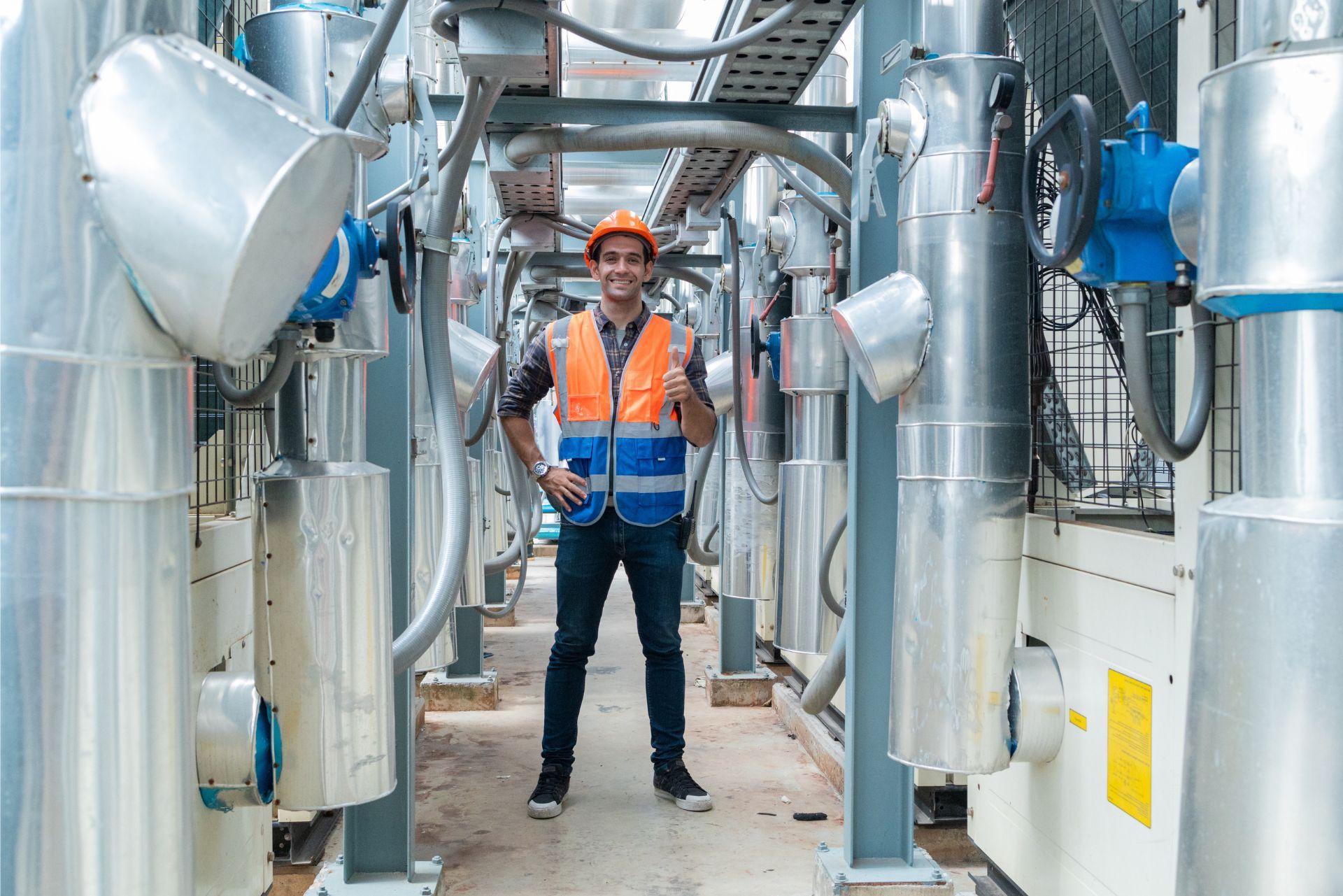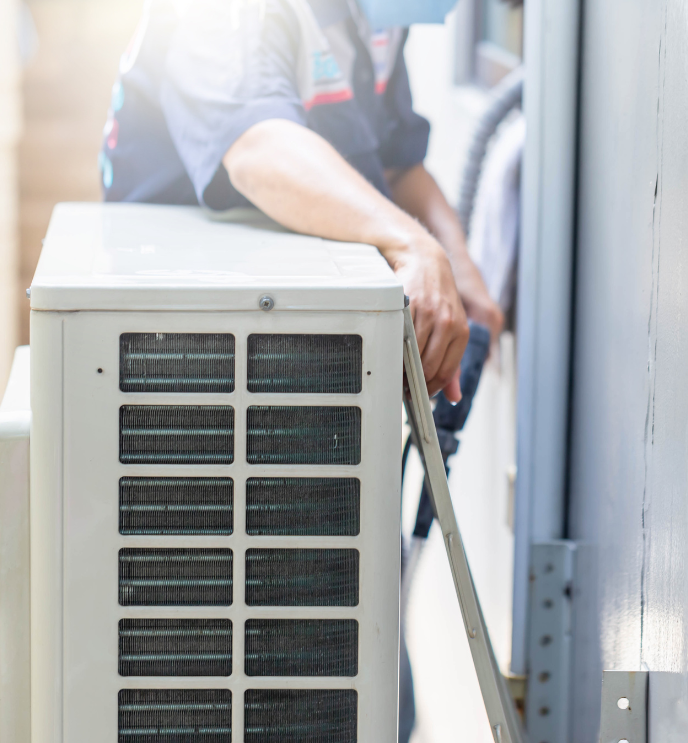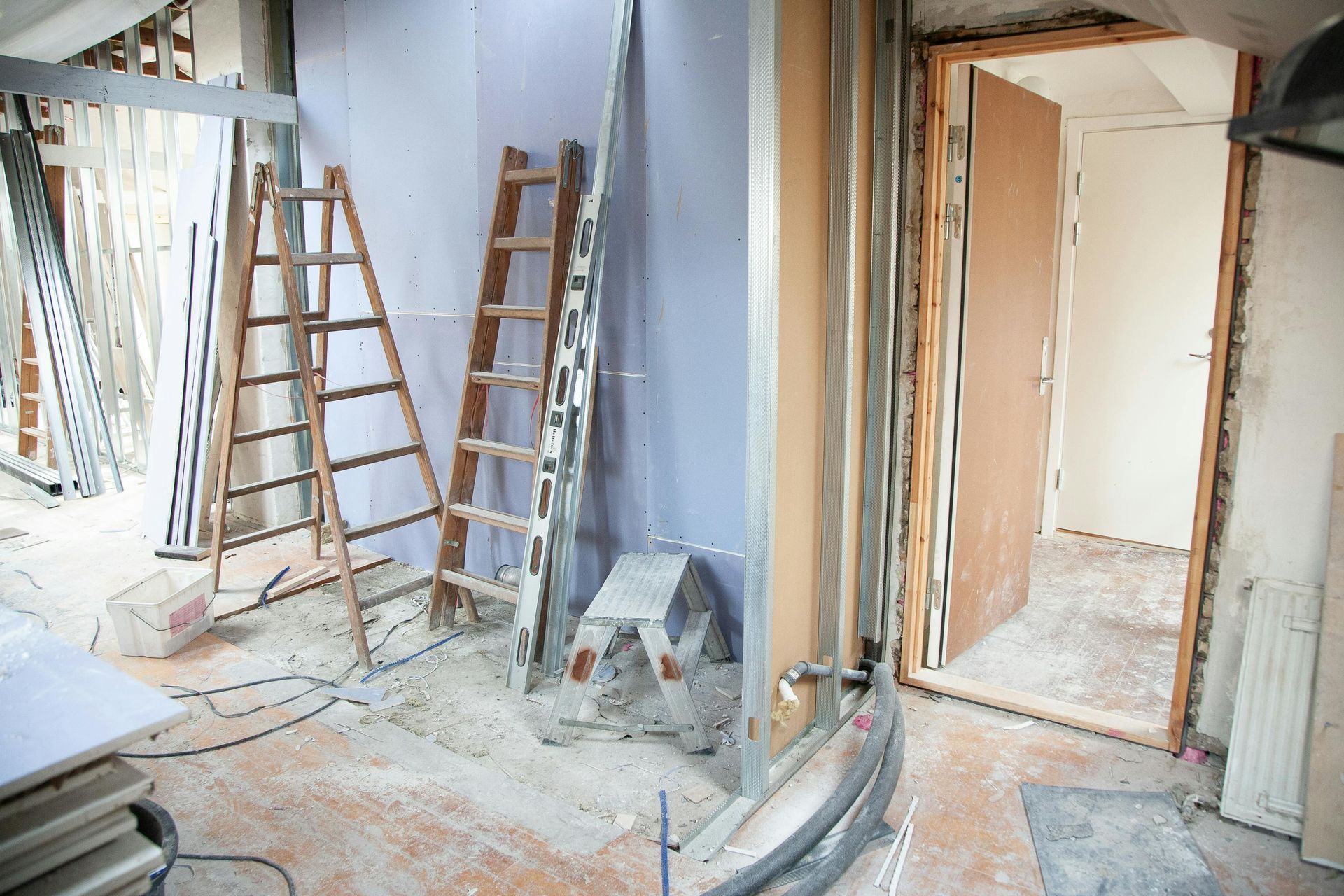Types of Contractors We Serve
Jonathan Behr
Owner of Contractor Insurance Pros by Behr Insurance Services
Index
Contact Us
Phone
Location
Simi Valley, CA 93065
The Woodlands, TX 77382
Katy, TX 77494
In the world of HVAC (Heating, Ventilation, and Air Conditioning), chiller technicians play a crucial role in ensuring that cooling systems operate efficiently and effectively. These professionals are responsible for installing, maintaining, and repairing chiller systems, which are essential for various industries, including manufacturing, healthcare, and commercial buildings. However, like any profession, chiller technicians face risks that could lead to financial losses. This is where chiller technician insurance comes into play.
This article delves into the importance of insurance for chiller technicians, the types of coverage available, and how to choose the right policy. Understanding these aspects can help chiller technicians protect themselves and their businesses from unforeseen circumstances.
The Importance of Insurance for Chiller Technicians
Insurance is not just a safety net; it is a vital component of running a successful chiller technician business. The nature of the work involves exposure to various risks, including accidents, equipment failure, and liability claims. Without proper insurance, a single incident could lead to significant financial strain.
Protection Against Liability Claims
Chiller technicians often work in environments where accidents can happen. For instance, if a technician accidentally damages a client's property while performing repairs, they could be held liable for the costs. Liability insurance protects technicians from these claims, covering legal fees and compensation costs if they are found responsible.
Additionally, having liability insurance can enhance a technician's credibility. Clients are more likely to hire professionals who are insured, as it demonstrates a commitment to quality and responsibility. This can lead to more business opportunities and a stronger reputation in the industry. Moreover, in a competitive market, showcasing insurance coverage can serve as a differentiator, giving technicians an edge over competitors who may not prioritize such safeguards.
Coverage for Equipment and Tools
Chiller technicians rely heavily on specialized tools and equipment to perform their jobs. These tools can be expensive, and losing them due to theft, damage, or accidents can have a significant impact on a technician's ability to work. equipment insurance provides coverage for these tools, ensuring that technicians can quickly replace or repair them without incurring hefty out-of-pocket expenses.
Furthermore, the rapid advancement of technology in the HVAC industry means that technicians often invest in the latest equipment to stay competitive. This investment can be substantial, and without insurance, the financial burden of replacing high-tech tools can be overwhelming. Equipment insurance not only protects against loss but also allows technicians to maintain their operational efficiency, ensuring they can deliver the best service possible to their clients.
Protection Against Business Interruptions
Unexpected events, such as natural disasters or equipment failures, can lead to business interruptions. For chiller technicians, this could mean lost income during the downtime. Business interruption insurance helps cover lost revenue and ongoing expenses, allowing technicians to recover more quickly and resume operations.
In addition to natural disasters, other unforeseen circumstances, such as a sudden illness or injury to the technician, can also disrupt business operations. In such cases, having business interruption insurance can provide a financial cushion, allowing technicians to manage their expenses while they are unable to work. This type of coverage is essential for maintaining stability in a business that relies on consistent service delivery, ensuring that technicians can weather the storm and continue to serve their clients effectively.

Types of Insurance Coverage for Chiller Technicians
Understanding the various types of insurance coverage available is essential for chiller technicians. Each type of insurance serves a different purpose and can be tailored to meet specific needs. Here are some of the most common types of coverage that chiller technicians should consider:
General Liability Insurance
General liability insurance is fundamental for any business, including chiller technicians. This coverage protects against claims of bodily injury, property damage, and personal injury. For example, if a client trips over equipment left on-site and sustains an injury, general liability insurance would cover medical expenses and legal fees associated with the claim. Additionally, it can also provide protection against advertising injuries, such as claims of slander or copyright infringement, which can be particularly relevant in a competitive market where reputation is key.
Professional Liability Insurance
Also known as errors and omissions insurance, professional liability insurance protects technicians against claims of negligence or inadequate work. If a client alleges that a technician's work led to equipment failure or financial loss, this insurance can cover legal fees and any settlements or judgments. This type of coverage is especially important in the chiller industry, where the stakes can be high, and the cost of mistakes can lead to significant financial repercussions for both technicians and their clients.
Workers' Compensation Insurance
For chiller technicians who employ others, workers' compensation insurance is essential. This coverage provides benefits to employees who are injured on the job, covering medical expenses and lost wages. In many states, having workers' compensation insurance is a legal requirement for businesses with employees. Furthermore, it fosters a safer work environment by encouraging employers to implement safety protocols and training, ultimately reducing the risk of workplace accidents and injuries.
Commercial Auto Insurance
Chiller technicians often travel to various job sites, making commercial auto insurance a necessary consideration. This insurance covers vehicles used for business purposes, protecting against accidents, theft, and damage. Personal auto insurance may not provide adequate coverage for business-related activities, making commercial auto insurance a wise investment. Moreover, this coverage can also extend to liability for injuries or damages caused while driving for work, ensuring that technicians are protected on the road as well as at their job sites.
Equipment and Tool Insurance
As mentioned earlier, equipment and tool insurance is vital for chiller technicians. This coverage protects against loss or damage to tools and equipment, allowing technicians to replace or repair them without significant financial burden. It is particularly important for those who rely heavily on specialized equipment to perform their jobs. In addition to covering theft or accidental damage, some policies may also offer coverage for equipment breakdowns, which can be crucial for minimizing downtime and maintaining productivity in a field where timely service is essential.
Moreover, technicians should consider the value of their tools and equipment when selecting coverage limits, as underinsuring could lead to substantial out-of-pocket expenses in the event of a loss. Keeping an updated inventory of tools and regularly reviewing insurance policies can help ensure that coverage remains adequate and relevant to the technician’s evolving needs.
How to Choose the Right Insurance Policy
Choosing the right insurance policy can be overwhelming, given the variety of options available. However, by following a few key steps, chiller technicians can find a policy that meets their needs and provides adequate protection.
Assess Your Risks
The first step in selecting insurance is to assess the risks associated with the specific work environment and the types of services offered. Consider factors such as the nature of the jobs, the tools used, and the potential for liability claims. Understanding these risks will help in determining the types and levels of coverage needed. For instance, if a technician frequently works in commercial settings, they may face higher risks compared to residential jobs, necessitating more comprehensive coverage. Additionally, evaluating past incidents or claims can provide insights into potential future risks, allowing for a more tailored insurance approach.
Compare Policies and Providers
Once the risks have been assessed, it is important to compare different insurance policies and providers. Look for companies that specialize in coverage for HVAC professionals or contractors, as they will have a better understanding of the unique risks involved. Review the policy details, including coverage limits, exclusions, and premiums, to find the best fit. It's also wise to consider the financial stability and reputation of the insurance providers. Reading customer reviews and checking ratings from independent agencies can offer a clearer picture of how well a company handles claims and customer service, which are crucial factors when the time comes to file a claim.
Seek Professional Advice
Consulting with an insurance agent or broker who specializes in commercial insurance can be invaluable. They can provide insights into the specific needs of chiller technicians and recommend appropriate coverage options. Additionally, they can help navigate the complexities of insurance policies, ensuring that technicians understand their rights and responsibilities. A knowledgeable agent can also assist in identifying any gaps in coverage that may not be immediately apparent, such as the need for additional endorsements or riders that can enhance a policy's protection. Furthermore, they can keep clients informed about changes in the insurance landscape, such as new regulations or emerging risks, ensuring that the coverage remains relevant and effective over time.
The Cost of Chiller Technician Insurance
The cost of insurance for chiller technicians can vary widely based on several factors. Understanding these factors can help technicians budget for their insurance needs and find affordable options. With the right approach, chiller technicians can secure the necessary coverage without breaking the bank, ensuring they are protected while they focus on their work.
Factors Affecting Insurance Premiums
Several factors influence the cost of insurance premiums for chiller technicians, including:
- Type of Coverage: The more comprehensive the coverage, the higher the premium. For example, general liability insurance may be less expensive than professional liability insurance.
- Business Size: Larger businesses with more employees and higher revenue may face higher premiums due to increased risk exposure.
- Claims History: A history of frequent claims can lead to higher premiums, as insurers may view the business as a higher risk.
- Location: The geographical location can also impact premiums, as certain areas may have higher rates of accidents or claims.
Average Costs
While costs can vary, chiller technicians can expect to pay anywhere from a few hundred to several thousand dollars annually for insurance. For instance, general liability insurance may cost around $500 to $1,500 per year, while professional liability insurance can range from $1,000 to $3,000 annually, depending on the coverage limits and specific risks involved. Additionally, factors such as the technician's experience level and the types of clients they serve can further influence these averages, making it essential for technicians to shop around for the best rates.
Ways to Lower Insurance Costs
Chiller technicians can take several steps to reduce their insurance costs:
- Bundle Policies: Many insurers offer discounts for bundling multiple policies, such as general liability and commercial auto insurance.
- Maintain a Clean Claims History: Avoiding claims and maintaining a good safety record can lead to lower premiums over time.
- Implement Safety Measures: Investing in safety training and equipment can reduce the risk of accidents, which may lead to lower insurance costs.
Moreover, technicians should consider participating in industry-specific training programs that not only enhance their skills but can also demonstrate to insurers their commitment to safety and professionalism. This proactive approach can often lead to additional discounts on premiums. Furthermore, being part of a professional association may provide access to group insurance plans, which can offer more competitive rates than individual policies. By leveraging these resources, chiller technicians can find ways to effectively manage their insurance expenses while ensuring they have the coverage necessary to protect their business and livelihood.

Common Misconceptions About Chiller Technician Insurance
Despite the importance of insurance, there are several misconceptions that can lead chiller technicians to underestimate its value. Addressing these misconceptions can help technicians make informed decisions about their coverage.
“I Don’t Need Insurance If I’m Careful”
While being careful can reduce the likelihood of accidents, it does not eliminate the risk entirely. Unexpected events can occur, and having insurance provides peace of mind and financial protection. It is better to be prepared for the unforeseen than to face significant financial losses due to an accident or claim. For instance, a minor mishap during a routine maintenance check could result in damage to expensive equipment or even injury to a client. In such scenarios, the costs associated with repairs or medical bills can quickly escalate, making insurance a crucial safety net.
“Insurance Is Too Expensive”
While insurance costs can add up, the potential financial burden of not having coverage can be far greater. Additionally, there are various options available to fit different budgets. By comparing policies and seeking professional advice, chiller technicians can find affordable coverage that meets their needs. Furthermore, many insurance providers offer discounts for bundling policies or for maintaining a good safety record, which can significantly lower premiums. Understanding these options can empower technicians to make cost-effective choices that still provide adequate protection.
“My Business Is Too Small for Insurance”
Many small business owners believe that insurance is unnecessary for their size. However, even small businesses face risks that can lead to significant financial repercussions. Insurance is essential for businesses of all sizes, as it protects against unforeseen liabilities and helps ensure long-term sustainability. For example, a small chiller repair business might not think twice about the potential for a client to file a lawsuit over a faulty installation. Without insurance, the costs associated with legal fees and settlements could cripple a small operation. Moreover, having insurance can enhance a business's credibility, as clients often prefer to work with insured technicians, thus opening the door for more opportunities and contracts.
Conclusion
Chiller technician insurance is an essential aspect of running a successful business in the HVAC industry. By understanding the importance of insurance, the types of coverage available, and how to choose the right policy, chiller technicians can protect themselves and their businesses from potential risks. Investing in insurance not only safeguards against financial losses but also enhances credibility and fosters trust with clients.
Ultimately, the right insurance policy can provide peace of mind, allowing chiller technicians to focus on their work and deliver quality service without the constant worry of what might happen if something goes wrong. As the industry continues to evolve, staying informed about insurance options and best practices will remain a crucial part of being a successful chiller technician.
Areas we serve









